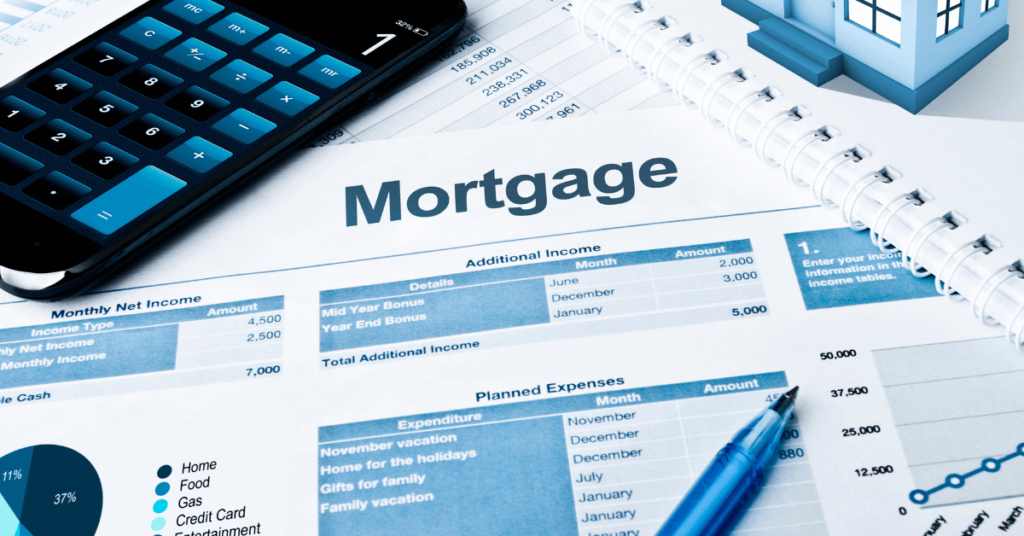Looking to buy a home and need to understand mortgage loans? This beginner’s guide covers everything you need to know, from the types of loans available to the application process and how to choose the right loan for you. Read on to learn more!

Introduction:
Most homebuyers need to take out a mortgage loan to finance their purchase. A mortgage is a loan given to a borrower to purchase a property. In this beginner’s guide, we will cover everything you need to know about mortgage loans, from the types of loans available to the application process, and how to choose the right loan for you.
Types of Mortgage Loans
Mortgage loans come in different types, and each type has its own terms and conditions. Here are the most common types of mortgage loans:
Fixed-rate mortgages
The interest rate remains the same throughout the loan term.
Offers predictable monthly payments and protection from interest rate hikes.
Popular for buyers who plan to stay in their homes for a long time.
Adjustable-rate mortgages (ARM)
The interest rate fluctuates according to market conditions.
Offers lower initial interest rates and payments, but payments may increase over time.
Popular for buyers who plan to stay in their homes for a short period.
Interest-only mortgages
Allows borrowers to pay only the interest for a specified period, usually 5 to 10 years.
Monthly payments are lower during the interest-only period, but payments increase afterward.
Popular for buyers with irregular income or those who expect to earn more in the future.
FHA loans
Insured by the Federal Housing Administration (FHA).
Offers lower down payment requirements and more relaxed credit score requirements.
Popular for first-time homebuyers and those with low credit scores.
VA loans
Guaranteed by the Department of Veterans Affairs (VA).
Offers no down payment requirements and relaxed credit score requirements.
Exclusive to veterans, active-duty military personnel, and their spouses.
How to Qualify for a Mortgage Loan
To qualify for a mortgage loan, borrowers need to meet certain requirements set by the lender. Here are the most common requirements:
Credit score requirements
Most lenders require a credit score of at least 620.
Higher credit scores may qualify for lower interest rates and better terms.
Debt-to-income ratio
Most lenders require a debt-to-income ratio of 43% or lower.
Debt-to-income ratio is calculated by dividing total monthly debt payments by gross monthly income.
Employment history and income verification
Most lenders require borrowers to have a stable employment history and verifiable income.
Self-employed borrowers may need to provide additional documentation.
Down payment requirements
Most lenders require a down payment of at least 3% to 20% of the home’s purchase price.
Down payment requirements may vary depending on the loan type and borrower’s creditworthiness.
The Mortgage Loan Application Process
Applying for a mortgage loan can be a complicated and lengthy process. Here are the steps involved in the mortgage loan application process:
Pre-approval process
Borrowers can get pre-approved for a mortgage loan before house hunting.
Pre-approval involves a lender checking the borrower’s credit score, income, and debt-to-income ratio.
Required Documentation
Borrowers need to provide documentation to prove income, employment, and assets.
Documentation may include pay stubs, tax returns, bank statements, and employment verification.
Loan processing and underwriting
The lender evaluates the borrower’s creditworthiness and determines the loan amount and interest rate.
Underwriting involves verifying the borrower’s financial information and assessing the risk.
Closing on the loan
Closing is the final stage of the mortgage loan process.
Borrowers sign the loan documents, pay closing costs, and receive the funds.
Choosing the Right Mortgage Loan for You
Choosing the right mortgage loan can save borrowers thousands of dollars over the life of the loan. Here are some factors to consider when choosing a mortgage loan:
Loan term
The loan term refers to the length of time to pay off the loan.
Shorter loan terms, such as 15-year mortgages, offer lower interest rates but higher monthly payments.
Longer loan terms, such as 30-year mortgages, offer lower monthly payments but higher interest rates.
Interest rate
The interest rate determines how much borrowers will pay in interest over the life of the loan.
Compare interest rates from different lenders and consider whether a fixed or adjustable-rate mortgage is right for you.
Closing costs
Closing costs are the fees charged by lenders and third-party providers to process the loan.
Closing costs can vary widely depending on the lender and loan type.
Consider whether the closing costs are worth the benefits of the loan.
Down payment
A higher down payment can lower monthly payments and interest rates.


